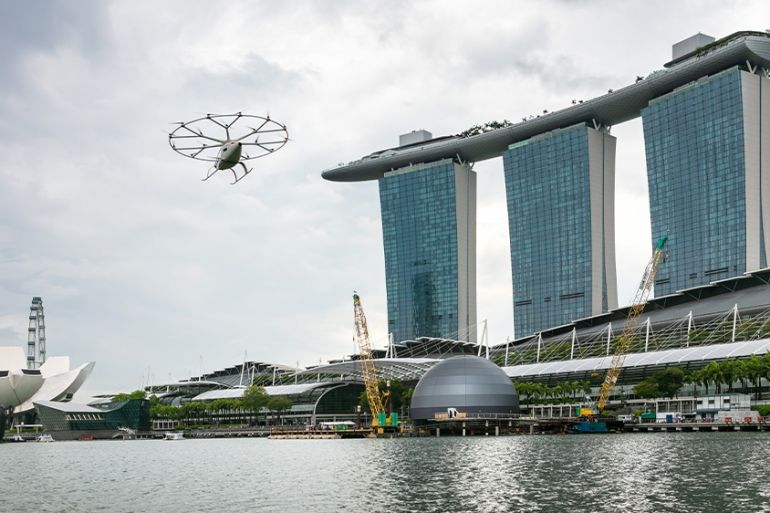Singapore slump: Economic growth falls in 2019 on trade woes
Weak manufacturing dragged the economy down even as services and construction offset some of the weakness.

Singapore‘s economy expanded at its slowest pace in 10 years in 2019 as its manufacturing sector struggled, even though growth picked up slightly in the fourth quarter, preliminary data showed on Thursday.
The export-oriented economy has been hit hard by the drawn-out trade war between the United States and China as well as a cyclical global downturn in the electronics sector.
Keep reading
list of 3 itemsDate set for US-China trade deal sends world markets to new high
Hong Kong’s losses may be Singapore’s gain, new survey shows
Singapore’s gross domestic product (GDP) grew by 0.7 percent in 2019, the slowest annual pace since 2009 and down from 3.1 percent in 2018, according to advance estimates from the Ministry of Trade and Industry. Authorities are forecasting growth of between 0.5 percent to 2.5 percent in 2020.
“The global economic slowdown has already affected us. This year we avoided a recession. Our economy is still growing, but less vigorously than we would like,“ Prime Minister Lee Hsien Loong said in his annual New Year message on December 31.
The services and construction sectors offset weakness in manufacturing, helping the economy grow at a slightly faster pace in the fourth quarter.
GDP grew 0.8 percent in October-December from the same period a year ago, compared with a revised 0.7 percent in the previous quarter, the Ministry of Trade and Industry said in a statement.
Analysts polled by Reuters had expected GDP growth of 0.8 percent.
The data show that while “manufacturing momentum remains in the doldrums, nevertheless services and construction are likely to continue being the bright spots into 2020,” Selena Ling, head of research and strategy at Oversea-Chinese Banking Corp in Singapore, told Bloomberg.
The Singapore dollar was little changed after the release of the advance estimates, which are calculated largely from data in the first two months of the quarter. They are often revised once the full quarter’s data are available.
The country’s Straits Times Index rose 0.35 percent in early share market trade.
With the island nation expected to hold elections within months, economists are expecting policy measures in the upcoming budget on February 18 aimed at bolstering growth
“We are seeing improvement on the growth front although it will likely be a weak recovery,” said DBS economist Irvin Seah.
“The government is going to roll out the fiscal budget next month and this will likely be very generous,” he added, citing surpluses accumulated in recent years and upcoming elections, which must be held by early 2021 at the latest.
Last October, the Monetary Authority of Singapore eased monetary policy for the first time since 2016, saying the economy still faced external risks even as it narrowly avoided a recession in the third quarter.
But OCBC’s Ling said there was “no rush” for further action from the central bank, which holds its next semi-annual meeting in April.
“For now, fiscal policy can do the heavy-lifting,” said Ling, referring to the upcoming budget.